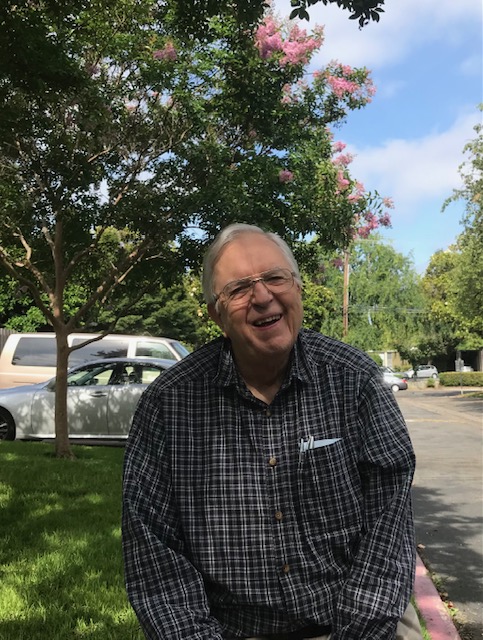One New Man?
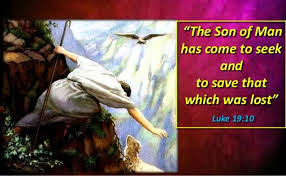


Consider that your very existence is no accident. You had nothing to say about being conceived or born. You did not choose your bio parents, nor the brief time of history you'd be onstage. Does it really matter that you are sharing the planet with 8000 billion other souls? You might live to be 100 years old or you could die tomorrow. Could it be that your have been invited here by the Creator? Yes!
Everyone knows there is a God. The default is believing in many gods--because we are self-centered and fallen. If God did not seek us out one by one, we'd stay lost.
 Jesus is a Jew, and the Bible is an Oriental book, not an Occidental book. The purpose of this article is to jolt you out of your own cultural ghetto so you perceive the Jesus Christ, Savior of the world, more holistically. Jesus is very much alive today, and He is seeking to know YOU, one-on-one, with no intermediary, no proxy, no third-party between you and Him.
Jesus is a Jew, and the Bible is an Oriental book, not an Occidental book. The purpose of this article is to jolt you out of your own cultural ghetto so you perceive the Jesus Christ, Savior of the world, more holistically. Jesus is very much alive today, and He is seeking to know YOU, one-on-one, with no intermediary, no proxy, no third-party between you and Him.
For there is one God and one Mediator between God and men, the Man Christ Jesus, who gave Himself a ransom for all. (1 Timothy 2:5)
Jesus seeks you to know Him very personally. Admitting that there is a God is just a start. Many think God might be good life insurance, just in case. Many consider the Deity to be their cosmic Good-Luck charm. Others say they have "accepted Jesus as their personal Savior" (but not their Lord). He owns the entire universe, He created it, He's in charge of everything that happens. Most of us feel entitled--"bad things happen to others but I live a charmed life." Surely most everyone has an ego problem! God is holy, and "the high and lofty One who inhabits eternity." He is also self-giving love: the name of the dance of life is love.
The Christian life has been called "The Exchanged Life" -- that life becomes yours as soon as you give God that last one percent!
But, we know that ‘all of us possess knowledge.’ Knowledge puffs up, but love builds up. Anyone who claims to know something does not yet have the necessary knowledge; but anyone who loves God is known by him." (1 Corinthians 8:1,2)
"Ask, and it will be given to you; search, and you will find; knock, and the door will be opened for you. For everyone who asks receives, and everyone who searches finds, and for everyone who knocks, the door will be opened. Is there anyone among you who, if your child asks for bread, will give a stone? Or if the child asks for a fish, will give a snake? If you then, who are evil, know how to give good gifts to your children, how much more will your Father in heaven give good things to those who ask him! (Mathew 7:7-11)
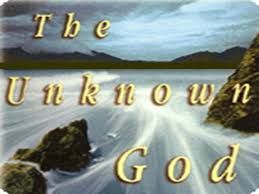 |
While Paul was waiting for them in Athens, he was deeply distressed to see that the city was full of idols. So he argued in the synagogue with the Jews and the devout persons, and also in the marketplace every day with those who happened to be there. Also some Epicurean and Stoic philosophers debated with him. Some said, “What does this babbler want to say?” Others said, “He seems to be a proclaimer of foreign divinities.” (This was because he was telling the good news about Jesus and the resurrection.) So they took him and brought him to the Areopagus and asked him, “May we know what this new teaching is that you are presenting? It sounds rather strange to us, so we would like to know what it means.” Now all the Athenians and the foreigners living there would spend their time in nothing but telling or hearing something new. Then Paul stood in front of the Areopagus and said, “Athenians, I see how extremely religious you are in every way. For as I went through the city and looked carefully at the objects of your worship, I found among them an altar with the inscription, ‘To an unknown god.’ What therefore you worship as unknown, this I proclaim to you. The God who made the world and everything in it, he who is Lord of heaven and earth, does not live in shrines made by human hands, nor is he served by human hands, as though he needed anything, since he himself gives to all mortals life and breath and all things. From one ancestor he made all nations to inhabit the whole earth, and he allotted the times of their existence and the boundaries of the places where they would live, so that they would search for God and perhaps grope for him and find him—though indeed he is not far from each one of us. For ‘In him we live and move and have our being’; as even some of your own poets have said, ‘For we too are his offspring.’ Since we are God’s offspring, we ought not to think that the deity is like gold, or silver, or stone, an image formed by the art and imagination of mortals. While God has overlooked the times of human ignorance, now he commands all people everywhere to repent, because he has fixed a day on which he will have the world judged in righteousness by a man whom he has appointed, and of this he has given assurance to all by raising him from the dead.” When they heard of the resurrection of the dead, some scoffed; but others said, “We will hear you again about this.” At that point Paul left them. But some of them joined him and became believers, including Dionysius the Areopagite and a woman named Damaris, and others with them. (Acts 17:16-34) |
Life on earth has patterns, seasons and cycles.
A generation goes, and a generation comes, but the earth remains forever. The sun rises and the sun goes down, and hurries to the place where it rises. The wind blows to the south, and goes around to the north; round and round goes the wind, and on its circuits the wind returns. All streams run to the sea, but the sea is not full; to the place where the streams flow, there they continue to flow. All things are wearisome; more than one can express; the eye is not satisfied with seeing, or the ear filled with hearing.
What has been is what will be, and what has been done is what will be done; there is nothing new under the sun. Is there a thing of which it is said, “See, this is new”? It has already been, in the ages before us. The people of long ago are not remembered, nor will there be any remembrance of people yet to come by those who come after them. (Ecclesiastes 1:4-11)
A third of life is spent sleeping! I don't know anyone who feels cheated because he had a good night's sleep, rested his weary bones, dreamed pleasant dreams, woke up to get a fresh start in life! Some dreams are nightmares to be sure! While we sleep the brain's CPU processes everything we saw, heard, read experienced the previous day, and compensated by hopefully moving us towards further wholeness.
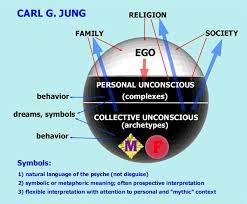
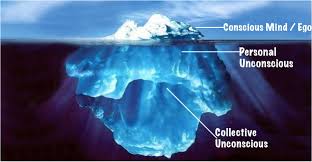
Background Info |
A nightmare, also called a bad dream, is an unpleasant dream that can cause a strong emotional response from the mind, typically fear but also despair, anxiety or great sadness. However, psychological nomenclature differentiates between nightmares and bad dreams; specifically, people remain asleep during bad dreams, whereas nightmares can awaken individuals. The dream may contain situations of discomfort, psychological or physical terror, or panic. After a nightmare, a person will often awaken in a state of distress and may be unable to return to sleep for a short period of time. Recurrent nightmares may require medical help, as they can interfere with sleeping patterns and cause insomnia. Nightmares can have physical causes such as sleeping in an uncomfortable position or having a fever, or psychological causes such as stress or anxiety. Eating before going to sleep, which triggers an increase in the body's metabolism and brain activity, can be a potential stimulus for nightmares. The prevalence of nightmares in children (5–12 years old) is between 20 and 30%, and for adults is between 8 and 30%.(Wikipedia)  A dream is a succession of images, ideas, emotions, and sensations that usually occur involuntarily in the mind during certain stages of sleep. The content and function of dreams are not fully understood, although they have been a topic of scientific, philosophical and religious interest throughout recorded history. Dream interpretation is the attempt at drawing meaning from dreams and searching for an underlying message. The scientific study of dreams is called oneirology. Dreams mainly occur in the rapid-eye movement (REM) stage of sleep—when brain activity is high and resembles that of being awake. REM sleep is revealed by continuous movements of the eyes during sleep. At times, dreams may occur during other stages of sleep. However, these dreams tend to be much less vivid or memorable. The length of a dream can vary; they may last for a few seconds, or approximately 20–30 minutes. People are more likely to remember the dream if they are awakened during the REM phase. The average person has three to five dreams per night, and some may have up to seven; however, most dreams are immediately or quickly forgotten. Dreams tend to last longer as the night progresses. During a full eight-hour night sleep, most dreams occur in the typical two hours of REM. Dreams related to waking-life experiences are associated with REM theta activity, which suggests that emotional memory processing takes place in REM sleep. Babies spend almost half of their sleep dreaming, while the elderly spend less than a fifth. Blind people dream in other senses, especially if they lost their sight before the age of seven. This has led some scientists to suggest that dreams are a defense mechanism by specific areas of a malleable brain from being appropriated for other purposes while it is deprived of sensory input as an animal sleeps. Opinions about the meaning of dreams have varied and shifted through time and culture. Many endorse the Freudian theory of dreams – that dreams reveal insight into hidden desires and emotions. Other prominent theories include those suggesting that dreams assist in memory formation, problem solving, or simply are a product of random brain activation. Sigmund Freud, who developed the psychological discipline of psychoanalysis, wrote extensively about dream theories and their interpretations in the early 1900s. He explained dreams as manifestations of one's deepest desires and anxieties, often relating to repressed childhood memories or obsessions. Furthermore, he believed that virtually every dream topic, regardless of its content, represented the release of sexual tension. In The Interpretation of Dreams (1899), Freud developed a psychological technique to interpret dreams and devised a series of guidelines to understand the symbols and motifs that appear in our dreams. In modern times, dreams have been seen as a connection to the unconscious mind. They range from normal and ordinary to overly surreal and bizarre. Dreams can have varying natures, such as being frightening, exciting, magical, melancholic, adventurous, or sexual. The events in dreams are generally outside the control of the dreamer, with the exception of lucid dreaming, where the dreamer is self-aware. Dreams can at times make a creative thought occur to the person or give a sense of inspiration. (Wikipedia) Consciousness, at its simplest, is sentience or awareness of internal and external existence. Despite millennia of analyses, definitions, explanations and debates by philosophers and scientists, consciousness remains puzzling and controversial, being "at once the most familiar and most mysterious aspect of our lives". Perhaps the only widely agreed notion about the topic is the intuition that it exists. Opinions differ about what exactly needs to be studied and explained as consciousness. Sometimes, it is synonymous with the mind, and at other times, an aspect of it. In the past, it was one's "inner life", the world of introspection, of private thought, imagination and volition. Today, it often includes some kind of experience, cognition, feeling or perception. It may be awareness, awareness of awareness, or self-awareness. There might be different levels or orders of consciousness, or different kinds of consciousness, or just one kind with different features. Other questions include whether only humans are conscious, all animals, or even the whole universe. The disparate range of research, notions and speculations raises doubts about whether the right questions are being asked. Examples of the range of descriptions, definitions or explanations are: simple wakefulness, one's sense of selfhood or soul explored by "looking within"; being a metaphorical "stream" of contents, or being a mental state, mental event or mental process of the brain; having phanera or qualia and subjectivity; being the 'something that it is like' to 'have' or 'be' it; being the "inner theatre" or the executive control system of the mind...Western philosophers since the time of Descartes and Locke have struggled to comprehend the nature of consciousness and how it fits into a larger picture of the world. These issues remain central to both continental and analytic philosophy, in phenomenology and the philosophy of mind, respectively. Some basic questions include: whether consciousness is the same kind of thing as matter; whether it may ever be possible for computing machines like computers or robots to be conscious; how consciousness relates to language; how consciousness as Being relates to the world of experience; the role of the self in experience; whether individual thought is possible at all; and whether the concept is fundamentally coherent. Recently, consciousness has also become a significant topic of interdisciplinary research in cognitive science, involving fields such as psychology, linguistics, anthropology, neuropsychology and neuroscience. The primary focus is on understanding what it means biologically and psychologically for information to be present in consciousness—that is, on determining the neural and psychological correlates of consciousness. The majority of experimental studies assess consciousness in humans by asking subjects for a verbal report of their experiences (e.g., "tell me if you notice anything when I do this"). Issues of interest include phenomena such as subliminal perception, blindsight, denial of impairment, and altered states of consciousness produced by alcohol and other drugs, or spiritual or meditative techniques. In medicine, consciousness is assessed by observing a patient's arousal and responsiveness, and can be seen as a continuum of states ranging from full alertness and comprehension, through disorientation, delirium, loss of meaningful communication, and finally loss of movement in response to painful stimuli. Issues of practical concern include how the presence of consciousness can be assessed in severely ill, comatose, or anesthetized people, and how to treat conditions in which consciousness is impaired or disrupted. The degree of consciousness is measured by standardized behavior observation scales such as the Glasgow Coma Scale. (Wikipedia) |
As we grow up, hopefully learning from experience, from parents and from school, and as we assimilate the vast amounts of information and knowledge we'll need just to survive, we easily put off knowing God for now. Educational institutions today are mostly anti-God. Think of Harvard, Yale, Stanford...schools that once focused on getting their students living according to a Biblical view of reality, knowing Jesus as Lord, and walking with Him. Yet many searchers find God in spite of the obstacles.
The four images below illustrate a pilgrim's journey from the self-awareness of childhood to Deism, to an existential world view, to discovering Jesus on the Road to Damascus as the Apostle Paul did, --being spiritually reborn.
"For God so loved the world that he gave his only Son, so that everyone who believes in him may not perish but may have eternal life. ‘Indeed, God did not send the Son into the world to condemn the world, but in order that the world might be saved through him. Those who believe in him are not condemned; but those who do not believe are condemned already, because they have not believed in the name of the only Son of God. And this is the judgment, that the light has come into the world, and people loved darkness rather than light because their deeds were evil. For all who do evil hate the light and do not come to the light, so that their deeds may not be exposed. But those who do what is true come to the light, so that it may be clearly seen that their deeds have been done in God.’ (John 3:16-21)
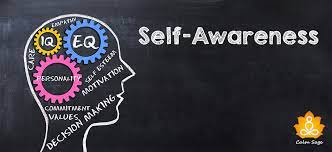
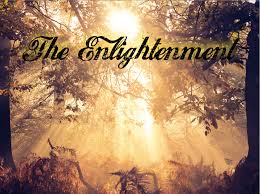
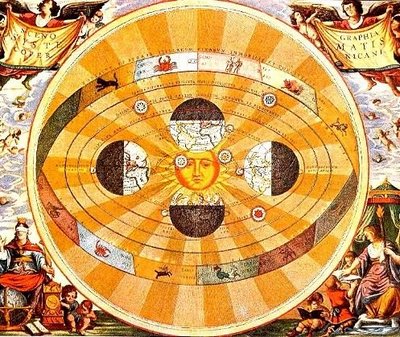


Jesus said to the Jews who had believed in him, ‘If you continue in my word, you are truly my disciples; and you will know the truth, and the truth will make you free.’
They answered him, ‘We are descendants of Abraham and have never been slaves to anyone. What do you mean by saying, “You will be made free”?’
Jesus answered them, ‘Very truly, I tell you, everyone who commits sin is a slave to sin.
The slave does not have a permanent place in the household; the son has a place there for ever.
So if the Son makes you free, you will be free indeed. I know that you are descendants of Abraham; yet you look for an opportunity to kill me,
because there is no place in you for my word. I declare what I have seen in the Father’s presence; as for you, you should do what you have heard from the Father.’
They answered him, ‘Abraham is our father.’
Jesus said to them, ‘If you were Abraham’s children, you would be doing what Abraham did,
but now you are trying to kill me, a man who has told you the truth that I heard from God.
This is not what Abraham did. You are indeed doing what your father does.’
They said to him, ‘We are not illegitimate children; we have one father, God himself.’
Jesus said to them, ‘If God were your Father, you would love me, for I came from God and now I am here.
I did not come on my own, but he sent me. Why do you not understand what I say? It is because you cannot accept my word.
You are from your father the devil, and you choose to do your father’s desires.
He was a murderer from the beginning and does not stand in the truth, because there is no truth in him.
When he lies, he speaks according to his own nature, for he is a liar and the father of lies.
But because I tell the truth, you do not believe me. Which of you convicts me of sin?
If I tell the truth, why do you not believe me? Whoever is from God hears the words of God.
The reason you do not hear them is that you are not from God.’
(John 8:31-47)

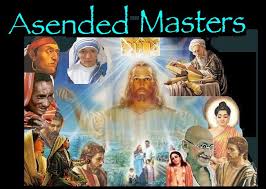
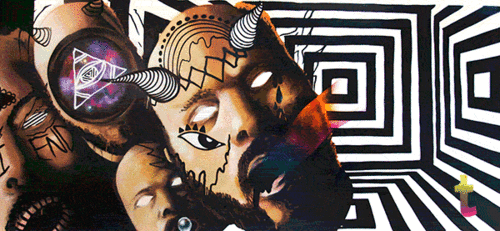
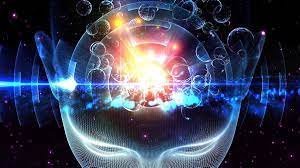
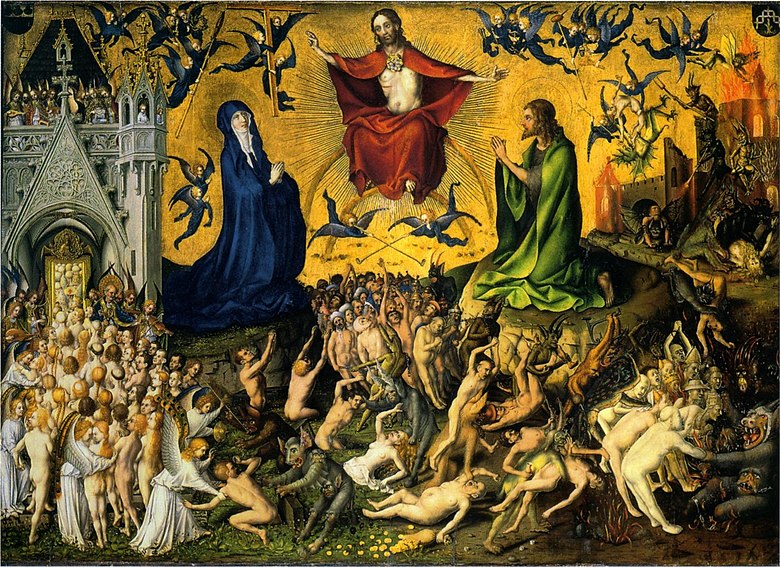
“Again, the kingdom of heaven is like a dragnet that was cast into the sea and gathered some of every kind,
which, when it was full, they drew to shore; and they sat down and gathered the good into vessels, but threw the bad away.
So it will be at the end of the age.
The angels will come forth, separate the wicked from among the just, and cast them into the furnace of fire.
There will be wailing and gnashing of teeth.” (Matthew 13:47-49)

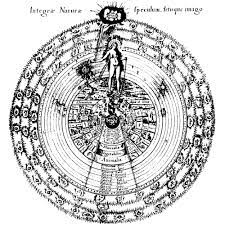
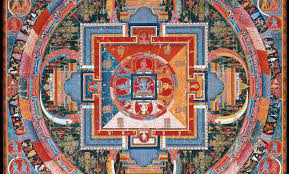
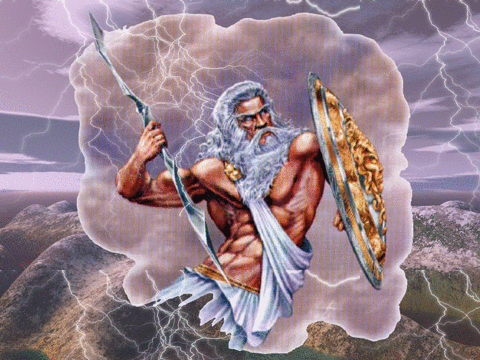

THE COOL smooth skin of the bright water was delicious to my feet and I walked on it for about an hour,
making perhaps a couple of hundred yards.
Then the going became different. The current grew swifter.
Great flakes or islands of foam came swirling down towards me,
bruising my shins like stones if I did not get out of their way.
The surface became uneven, rounded itself into lovely hollows and elbows of water
which distorted the appearance of the pebbles on the bottom
and threw me off my balance, so that I had to scramble to shore.
But as the banks hereabouts consisted of great flat stones,
I continued my journey without much hurt to my feet.
An immense yet lovely noise vibrated through the forest.
Hours later I rounded a bend and saw the explanation.
Before me green slopes made a wide amphitheatre, enclosing a frothy and pulsating lake into which, over many-coloured rocks, a waterfall was pouring.
Here once again I realised that something had happened to my senses so that they were now receiving impressions which would normally exceed their capacity.
On earth, such a waterfall could not have been perceived at all as a whole; it was too big.
Its sound would have been a terror in the woods for twenty miles.
Here, after the first shock, my sensibility "took" both, as a well-built ship takes a huge wave.
I exulted. The noise, though gigantic, was like giant's laughter:
like the revelry of a whole college of giants together laughing, dancing, singing, roaring at their high works.
Near the place where the fall plunged into the lake there grew a tree.
Wet with the spray, half- veiled in foam-bows, flashing with the bright, innumerable birds that flew among its branches,
it rose in many shapes of billowy foliage, huge as a fen-land cloud.
From every point apples of gold gleamed through the leaves.
(C. S. Lewis, The Great Divorce)
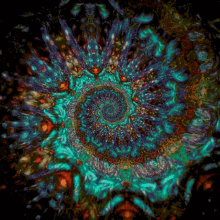
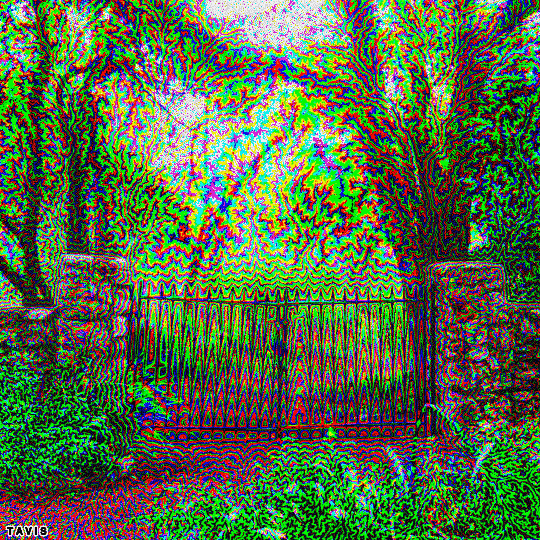
Fractals are not limited to geometric patterns, but can also describe processes in time. Fractal patterns with various degrees of self-similarity have been rendered or studied in images, structures, and sounds and found in nature, art, architecture and law. Fractals are of particular relevance in the field of chaos theory because the graphs of most chaotic processes are fractals. Many real and model networks have been found to have fractal features such as self similarity. (Wikipedia)
Counterpoint, which refers to the relationship between melodic lines, and polyphony, which refers to the simultaneous sounding of separate independent voices, are therefore sometimes distinguished from harmony. In popular and jazz harmony, chords are named by their root plus various terms and characters indicating their qualities. In many types of music, notably baroque, romantic, modern, and jazz, chords are often augmented with "tensions". A tension is an additional chord member that creates a relatively dissonant interval in relation to the bass.
Typically, in the classical common practice period a dissonant chord (chord with tension) "resolves" to a consonant chord. Harmonization usually sounds pleasant to the ear when there is a balance between the consonant and dissonant sounds. In simple words, that occurs when there is a balance between "tense" and "relaxed" moments. (Wikipedia)
For those who have grown up in Western Civilization, the influence of Jewish and Christian thought on our "American way of life" is often quoted. Until recently the majority of our ancestors were of European origin. Europeans are for the most part descended from Noah's son Japheth, and Japheth was a specialist in science, intellectual pursuits, and philosophy. Greek philosophy and Roman laws and beliefs about God and nature actually were the pervasive cultural roots of American democracy. However Christian and Jewish values and a strong pietistic Biblical influence certainly was of major importance in the early years of our nation's history. Science in the West derives from Greek philosophy much more than from the Bible so that Greek ideas strongly influence how we think about ourselves and our universe.
The United States has always been a pluralistic society, however in the past century large numbers of new immigrants have come from Mexico and Latin America, from the Asian and Far Eastern nations. Substantial numbers of Moslems, Buddhists, and Hindus have been added in to the original mix which was primarily "Judeo-Christian." Greek and Roman pagan religious values have also been revived in America in recent decades.
In this century science moved towards an almost exclusive emphasis on the observable aspects of the material world---philosophical principles and spiritual realities have been played down or ignored. Most all of modern secular science today is actually scientism, a branch of secular humanism. Instead of giving nominal assent to, or at least tolerating a Biblical world view, the climate in our land is now antichristian.
Of course spiritual information is not accessible to the scientific method of systematic study and investigation in a manner that readily generates a consensus and a testable body of truth. Rationalism, naturalism, and materialism have left Western Man with an impoverished soul, as many modern philosophers note. Rejection of Biblical ideas and our so-called 'Judeo-Christian heritage' has increased the curiosity of some in alternate metaphysics and New Age thinking which is reintroducing intangible dimensions of existence. A few western scientists have looked to Eastern philosophy for further clues to push back the frontiers of physics. In accommodating today's 'secular pluralism' some scholars have said that one need not be not opposed to Eastern philosophy in preference to Western. Men like the late psychologist C.G. Jung teach that Eastern thought is a complementary way of looking at things, much as male and female persons perceive truth and set their priorities in different ways, both of which are valid.
Russia suffered 70 years under government imposed atheism until recently. The result was not only complete political, social and economic bankruptcy in that vast land, but an enormous spiritual vacuum developed. As is often said in science, "nature abhors a vacuum." So also the materialism, scientism and atheistic humanism that has dominated our country will sooner or later give way to a renewal of spiritual values. It is not likely that we will experience a "return" to the Christian values that held sway in the past. That is, unless God grants us a real revival of the church in our time.
But the Bible is actually an Oriental not an Occidental Book. Western Christianity has come to us filtered through Greek and Roman mind-sets. In our pursuit of Biblical wholeness for modern man it is appropriate that we look at the religious perspectives of the East. I have discussed the complementarity of Male and Female in a paper called Made in the Image of God. Could it also be that a similar complementarity can be found in Eastern and Western ways of perceiving reality? I believe so.
After the Flood of Noah, Ham's grandson Nimrod built the first cities, including Babylon. Nimrod led the first organized revolt of mankind after the Flood, building the Tower of Babel and inventing what has come to be known as the "Babylonian Mystery Religion." Scholars have traced the spread of this religious system into three branch streams. One branch of the Babylonian Mystery Religion was taken to Egypt and became the Egyptian Mystery Religion (which was later to influence Free Masonry, Rosicrucianism and several New Age religions). A second branch of Babylonian religion was taken to ancient Pergamum and exported from there into the Etruscan Mystery Religion of Southern Europe. Many features of this branch of Babylonianism were incorporated in the Roman Catholic Church and into European culture where it has found its way into all branches of Western Christianity. The Third branch of the ancient religion of Babylon was incorporated in the vast world of Eastern pantheism.
Pantheism (from the Greek pan meaning "all" or "everything") is the belief that everything that exists is God or an extension of God. God is not separate and transcendent from his creation, as in the Biblical world-view. Hinduism and Buddhism teach that mankind has lost its connectedness and awareness of our own godhood and suffering is the result. Self-realization in various Eastern religions is the discovery that "I am God" "You are God" "All of us are God." The burgeoning New Age philosophies found everywhere in America today incorporate forms of imported Hinduism. But, one of the greatest failures of a pantheistic world-view is that moral values are rendered highly relative. Good and evil are both manifestations of the All. Reincarnation replaces the Biblical doctrine of one individual lifetime and judgment by a Holy God to follow this life. Hinduism incorporates astrology and is actually polytheistic. All other religions can be incorporated into a Hindu world view. All religious leaders, including Christ, are said to merely men who have overcome their sense of separateness from the ground of all being and thus become Avatars, or Saviors and Wise Teachers. All this nonsense and confusion comes, of course, from the "father of lies."
Any number of excellent books on comparative religion are available today. Modern-world men and women owe it to themselves to become acquainted with other world religions, if only so that they can better understand what they as Christians really believe. Ignorance of the belief systems of others tends to bigotry and intolerance, making us poor witnesses when we meet those of "foreign" faiths in our pluralistic society. There is some truth in every religion and light from God floods into all the dark corners of man's experience.
Think of the entire world as "pagan" with a veneer of civilization, skin deep, at the top. Dig down a bit into Modern Man and you'll find he's a naked savage at heart. Our nation is defaulting rapidly now to the root religion of paganism. The authority of Science and the Enlightenment are fading away. All this is a consequence of excluding Jesus Christ from our center of consciousness, in our bodies which are His temple. We are allowed to go to hell, if that's our final choice!


I danced in the morning
When the world was begun,
And I danced in the moon
And the stars and the sun,
And I came down from heaven
And I danced on the earth,
At Bethlehem
I had my birth.
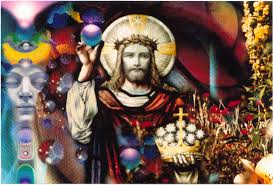

![]()
Lambert's Place
Email Lambert Dolphin
Archive for Newsletters
Library Annex (since 2018)
June 25, 2021
